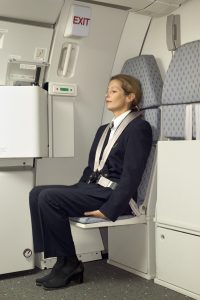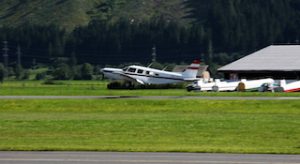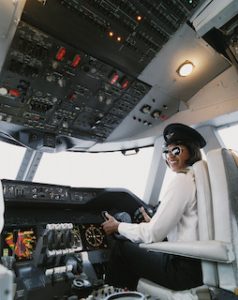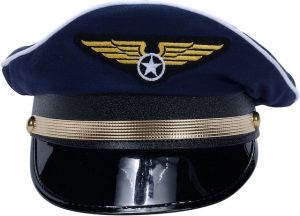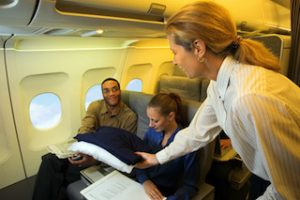Why Choose Laminar Pilot Training Courses
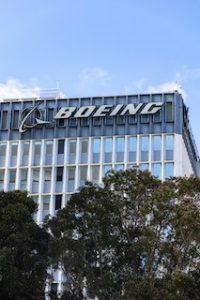 In the competitive field of aviation, choosing the right training program is crucial for aspiring pilots aiming for a successful career. Laminar Aviation stands out as a premier training provider, offering a range of advantages that make it an ideal choice for pilot training. This article delves into the numerous benefits of choosing Laminar Aviation, highlighting why it is the preferred choice for many aspiring airline pilots.
In the competitive field of aviation, choosing the right training program is crucial for aspiring pilots aiming for a successful career. Laminar Aviation stands out as a premier training provider, offering a range of advantages that make it an ideal choice for pilot training. This article delves into the numerous benefits of choosing Laminar Aviation, highlighting why it is the preferred choice for many aspiring airline pilots.
No visa hassles and related costs
One of the significant advantages of choosing Laminar Aviation is the elimination of visa hassles and related costs. Many pilot training programs require international travel, which involves obtaining visas, dealing with immigration regulations, and incurring additional expenses. Laminar Aviation simplifies this process by providing all training domestically, ensuring that students can focus entirely on their training without the added stress and financial burden of securing visas.
No travel and accommodation expenses
In addition to avoiding visa issues, Laminar Aviation’s training programs help students save on travel and accommodation expenses. International training programs often necessitate long-distance travel and extended stays away from home, leading to substantial costs for flights, hotels, and daily living expenses. Laminar Aviation’s local training options mean that students can stay close to home, reducing these expenses significantly and making high-quality pilot training more accessible and affordable.
State-of-the-art training facility
Laminar Aviation conducts all ground school and simulator sessions in a state-of-the-art airline training facility, using a Level-D Boeing 737 simulator. This simulator represents the highest standard of flight simulation technology, providing an incredibly realistic training environment. The use of such advanced equipment ensures that students receive the most up-to-date and relevant training, closely mirroring real-world flight conditions and challenges.
Realistic training environment
The Level-D Boeing 737 simulator offers a highly realistic cockpit environment, complete with accurate representations of controls, displays, and instrumentation. This high level of realism allows students to familiarize themselves with the actual cockpit layout and operation, making the transition to real-world flying smoother and more intuitive. The simulator’s advanced motion and visual systems further enhance the realism, providing trainees with a comprehensive and immersive training experience.
Comprehensive training programs
Laminar Aviation’s training programs are designed to cover all aspects of flight operations, from basic procedures to advanced emergency handling. The curriculum includes both ground school and simulator sessions, ensuring that students develop a deep understanding of aircraft systems, procedures, and regulations. This comprehensive approach ensures that graduates are well-prepared to handle the demands of a professional pilot’s career.
Expert instructional team
Laminar Aviation boasts an instructional team with a wealth of airline and Multi-Crew Cooperation (MCC) experience. This team of seasoned professionals brings invaluable industry knowledge and practical expertise to the training programs, providing students with insights and guidance that go beyond textbook learning.
Industry expertise
The instructors at Laminar Aviation have extensive backgrounds in airline operations and MCC training. This expertise allows them to deliver training that is not only technically accurate but also enriched with real-world examples and scenarios. Students benefit from the instructors’ firsthand experiences, gaining a deeper understanding of the complexities and nuances of professional flying.
Personalised training approach
Laminar Aviation’s instructors are committed to providing personalized training tailored to each student’s needs and learning pace. This individualized approach ensures that all students receive the attention and support they need to succeed. The instructors are dedicated to helping students overcome challenges, build confidence, and achieve their full potential as pilots.
Evolving with the industry
The aviation industry is constantly evolving, with new technologies, regulations, and best practices emerging regularly. Laminar Aviation’s training programs are designed to evolve with these changes, ensuring that students receive up-to-date training that aligns with current industry standards and requirements.
Cutting-edge curriculum
Laminar Aviation continually updates its curriculum to incorporate the latest advancements in aviation technology and procedures. This commitment to staying current ensures that students are trained on the most modern systems and techniques, preparing them for the realities of today’s aviation industry. By keeping pace with industry changes, Laminar Aviation ensures that its graduates are well-equipped to meet the demands of their future careers.
Adaptive training strategies
In addition to updating the curriculum, Laminar Aviation employs adaptive training strategies that respond to the changing needs of the industry. This flexibility allows the training programs to address emerging trends and challenges, providing students with the skills and knowledge they need to stay competitive in the job market. Laminar Aviation’s proactive approach to training ensures that its graduates are always at the forefront of the aviation industry.
Maximising employment prospects
Laminar Aviation’s training programs are designed to maximize students’ employment prospects by providing them with the skills and competencies that global airlines look for in their pilots. The airline pilot standard MCC course, in particular, is tailored to meet the high standards required by the industry, enhancing graduates’ job readiness and employability.
Industry-recognised certifications
Graduates of Laminar Aviation’s training programs receive industry-recognized certifications that validate their skills and knowledge. These certifications are highly regarded by airlines and other aviation employers, giving graduates a competitive edge in the job market. The rigorous training and assessment process ensures that graduates are thoroughly prepared for the challenges of professional flying.
Comprehensive competency development
Laminar Aviation’s training programs focus on developing a comprehensive set of competencies that are critical for successful flight operations. These competencies include flight path management, situational awareness, workload management, problem-solving, and decision-making. By honing these skills, graduates are well-prepared to handle the complex and dynamic nature of modern aviation.
Competencies upon graduation
Upon completion of Laminar Aviation’s training programs, graduates possess the major competencies that global airlines look for in their pilots. These competencies are essential for ensuring safe, efficient, and effective flight operations.
Flight path management
Graduates are proficient in flight path management, both with and without automation. They understand how to use automated systems effectively while also being capable of manual flight control when necessary. This dual proficiency ensures that they can maintain precise control of the aircraft under all conditions, contributing to the overall safety and efficiency of flight operations.
Situational awareness and workload management
Situational awareness and workload management are critical skills for any pilot. Graduates of Laminar Aviation’s programs have developed strong situational awareness, allowing them to maintain a clear understanding of their operational environment and anticipate potential hazards. They are also adept at managing their workload, prioritizing tasks, and preventing overload. These skills are essential for maintaining safety and performance during flight operations.
Problem solving and decision making
Effective problem-solving and decision-making are crucial for handling the unexpected challenges that can arise during flight. Graduates are trained to identify issues, evaluate options, and make sound decisions quickly and efficiently. This ability to think critically and act decisively is a key competency that airlines look for in their pilots.
Communication, Leadership, and Teamwork
Communication, leadership, and teamwork are fundamental principles of Crew Resource Management (CRM), which is a core component of Laminar Aviation’s training philosophy. Graduates have enhanced their communication skills, ensuring clear and effective interaction with crew members and air traffic control. They have also developed strong leadership and teamwork abilities, enabling them to lead and collaborate effectively within the cockpit environment. These skills are essential for ensuring that all tasks are performed efficiently and that the crew can respond effectively to any challenges that arise.
The Laminar Aviation advantage
Choosing Laminar Aviation for pilot training offers a multitude of benefits that make it a superior choice for aspiring pilots. From the elimination of visa hassles and travel expenses to the use of state-of-the-art training facilities and expert instructors, Laminar Aviation provides a training experience that is both comprehensive and practical. The evolving curriculum and adaptive training strategies ensure that students receive up-to-date training that prepares them for the ever-changing aviation industry.
Upon graduation, Laminar Aviation’s students possess the major competencies that global airlines look for, including flight path management, situational awareness, workload management, problem-solving, and decision-making. The emphasis on communication, leadership, and teamwork further enhances their readiness for a successful career in aviation.
Laminar Aviation’s commitment to excellence, coupled with its focus on practical, real-world training, makes it the ideal choice for those seeking a rewarding and successful career as a professional pilot. By choosing Laminar Aviation, aspiring pilots can be confident that they are receiving the highest standard of training, setting the stage for a bright and promising future in the skies.





